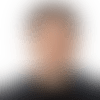If running an NFL front office is an inexact science, ranking one is, too.
In this annual attempt to sort the league's decision-makers, I aim to evaluate the job each team is doing in the present, like a Dan Hanzus Power Ranking. Draft record, free agency, cap management, self-scouting, coach hiring and even the public side of the job are all taken into consideration.
You could argue with a ranking or two, but you would be wrong.
1) Brandon Beane/Sean McDermott, Buffalo Bills
The Bills' transformation since McDermott's hire in January 2017 could be taught in a college-level course on how to rebuild a franchise. McDermott helped to hire Beane in May of that year, and they've hit every right note since: from big trades (Stefon Diggs, moving up for Josh Allen) and savvy draft picks (Tre'Davious White, Dion Dawkins, Matt Milano) to knowing which veterans to reward (Jordan Poyer, Micah Hyde) and when to move on (John Brown, LeSean McCoy). The Bills have a defensive coach, yet prioritized building an offensive roster around Allen. They always seem to find value in free agency (SEE: this year's pickups of Jamison Crowder, O.J. Howard, Rodger Saffold, DaQuan Jones and Duke Johnson).
No team is doing it better, and these two -- along with Allen -- deserve credit for helping to get funding for a new Bills stadium.
2) Les Snead, Los Angeles Rams
If I'm approaching this exercise like a Power Ranking, I'm giving extra credit to anyone who wins a Super Bowl by acting differently. You also get extra credit for wearing a T-shirt with your own adopted catchphrase about team-building -- and having LeBron James take notice. Furthermore, you get additional love for being the one who drafted the greatest defensive player since Lawrence Taylor ... even if Snead took Greg Robinson 11 spots ahead of Aaron Donald in the same draft.
Sean McVay's ability to develop Snead's mid/late-round gems into contributors is crucial, but there's no question that the Rams' approach to trade away all of their first-round picks since 2016 has worked. Since 2017, when McVay arrived, Los Angeles is second in total wins (including the playoffs), only behind the Kansas City Chiefs. Through trades and savvy cap management, the Rams are in a perpetual win-now mode that shows no signs of slowing down.
3) Kevin Colbert, Pittsburgh Steelers
This will be Colbert's final time on the list, with his upcoming retirement after the draft. Few GMs did a better, steadier job drafting players over the previous few decades, re-signing the best ones and knowing when to say goodbye. Pittsburgh rarely panicked in free agency, yet didn't ignore value, hopping on proven players like Joe Haden when they suddenly became available. His best picks, from Ben Roethlisberger to David DeCastro to T.J. Watt, were made after patiently letting the board come to him.
4) Brian Gutekunst, Green Bay Packers
All he's done is win, win, win, no matter what. The selection of Matt LaFleur as a head coach has been a home run. Besides the Jordan Love year, "Gutey" has been an excellent drafter, starting with his very first pick on the job: Jaire Alexander in the No. 18 slot back in 2018. Green Bay has also received massive contributions from free-agent pickups, with De'Vondre Campbell and Rasul Douglas being two of the latest examples.
Managing personalities is also part of the gig, and Gutekunst calmed the Aaron Rodgers situation down as well as possible in 2021. The team hasn't finished the job in the playoffs, but that's not on a general manager. I'm amazed how much criticism Gutekunst gets from Packer backers considering Green Bay is 39-10 in the last three seasons. These are the good old days, whether the fans recognize it or not.
5) Jason Licht, Tampa Bay Buccaneers
Perhaps all former Patriots staffers just need to build a roster perfectly made for Tom Brady, and He will come. I was surprised Licht could keep so many young core pieces like Chris Godwin and Carlton Davis this offseason, giving some reason to believe this squad will compete even after He retires for good.
Going back to Licht's first draft pick (Mike Evans), the Bucs' ability to acquire blue-chip talent like Godwin, Tristan Wirfs, Vita Vea, Devin White and Antoine Winfield Jr. is among the league's best. His free-agent moves (Shaq Barrett, Ndamukong Suh, Russell Gage) and recent trade for Shaq Mason look pretty sweet, too.
6) Brett Veach/Andy Reid, Kansas City Chiefs
No team has won more regular-season games or playoff bouts since 2017. Veach and Reid's team-building approach deserves credit for that, although I'm giving more to Patrick Mahomes' talent and Reid's game-planning. Moving up for Mahomes and signing Tyrann Mathieu in free agency were career-changing strokes of genius, but there have been misfires, too, like the Frank Clark trade and Clyde Edwards-Helaire pick. The emphasis on fixing the offensive line worked in 2021 at the expense of stasis elsewhere. Still, the star-heavy approach has mostly worked, with the Chiefs finding value in the secondary. The trade of Tyreek Hill to the Dolphins was a big bet on The Chief Way being bigger than any one player beyond Mahomes. It could provide a needed refresh of Reid's offense, with Marquez Valdes-Scantling and JuJu Smith-Schuster playing key roles.
7) Mickey Loomis, New Orleans Saints
No one finds change in the cushions of the salary cap couch quite like Loomis. In his greatest trick yet, Loomis turned the most money over the cap entering the offseason I've ever seen (except for the 2021 Saints) into an unnecessary surplus after the Saints' failed bid for Deshaun Watson. Saints Twitter grumbles, but this has been one of the most talented rosters for years, especially on defense and the offensive line. How else could you go 17-4 over the last three seasons in games started by Jameis Winston, Taysom Hill and Teddy Bridgewater?
8) Duke Tobin, Cincinnati Bengals
Signing middle-class free agents and drafting college brand names from big programs is a strategy that is working well for Tobin. He has to take some grief for failing to solve an offensive line problem that precedes Zac Taylor, but this is the second Super Bowl-caliber roster Tobin has put together. (Check out that 2015 Bengals squad before Andy Dalton's injury!)
9) Tom Telesco, Los Angeles Chargers
Telesco has stacked prime talent in the draft for a while now, and last year was no different: Left tackle Rashawn Slater was another potential All-Pro pick and Asante Samuel Jr. should prove to be a great second-round value. As of late, though, Telesco has shined in the other aspects of the job, too. The 10th-year Chargers GM added a quality pick at head coach in Brandon Staley last offseason. Then he went big-game hunting this offseason and scored J.C. Jackson and Khalil Mack. It all looks so good on paper, except that right side of the offensive line. Same as it ever was?
10) Bill Belichick, New England Patriots
After a prolonged slump, Belichick badly needed a good year from his Belichick-led front office. He/they delivered in 2021 with important free-agent pickups (Matthew Judon, Hunter Henry, Kendrick Bourne) and his best draft in nearly a decade (Mac Jones, Christian Barmore and Rhamondre Stevenson). One year won't fix a roster that was otherwise calcifying, but another strong draft would go a long way toward setting up Jones for success on his rookie contract. Making the playoffs with a rookie quarterback is no small feat, but this team needs more young building blocks.
11) Jon Robinson, Tennessee Titans
I'm partial to consistency, and it's hard to get more consistent than six straight winning seasons under Robinson's stewardship. While the Titans showcased their depth in surviving a brutal rash of injuries to nab the AFC's No. 1 seed, Robinson's 2021 draft class had little impact and his biggest swings in the offseason (the Julio Jones trade and Bud Dupree contract) failed to bear fruit. The Titans have a type, and their type is big and nasty.
12) Chris Ballard, Indianapolis Colts
Turning Carson Wentz into Matt Ryan and a draft pick was a nifty trick, although it doesn't nullify what Indianapolis gave up for Wentz in the first place. Ballard and the Colts are proof that good process and good coaching doesn't always lead to great results. Indy's roster is not quite as strong as it was two years ago, and Ballard needs another boffo draft to restock the aisles. The Colts GM has hit it big at subprime positions (guard, off-ball linebacker, safety, running back) while struggling to find the right quarterback and receivers.
13) John Lynch, San Francisco 49ers
The 49ers are still under .500 in the Lynch/Kyle Shanahan era, but at least they make it count when they make the playoffs. This is routinely one of the most talented rosters in football, which Lynch deserves a lot of credit for. The Trent Williams trade and subsequent contract was an underrated steal. I've always been impressed how the Niners find surprising pieces to excel on their defensive line and in the secondary.
14) Howie Roseman, Philadelphia Eagles
Like Bill Belichick, Roseman badly needed a rebound after a string of mostly shaky drafts -- and the Eagles GM got it with DeVonta Smith, Landon Dickerson and Milton Williams. The Jalen Hurts pick also looks pretty good now; Philadelphia got league-average starting-quarterback play from a second-rounder on a rookie contract. There have been some massive ups and downs in Roseman's reign, but he's settling in here just above average, like the Eagles' nine-win seasons in three of the last four years.
15) Eric DeCosta, Baltimore Ravens
You can barely tell Ozzie Newsome has left the GM post, which is intended as the highest of compliments. The Ravens balance short-term goals against veteran contracts along with tough decisions about their future (the Orlando Brown trade) as well as any team in the league. Baltimore staying competitive despite the worst injury luck in two decades speaks to the organizational strength. DeCosta just needs a few draft home runs like Newsome used to hit to round out the portfolio.
16) Jerry Jones, Dallas Cowboys
The Cowboys have been one of the best drafting teams for the last decade. What happens after that -- roster management, coaching and development -- is a lot less reliable. The Ezekiel Elliott albatross of a contract is typical of an organization that has often failed to self-scout and fallen for its own hype.
If a team is consistently less as a whole than the sum of its parts, does Jones get credit for the parts or blame for the whole?
17) John Schneider, Seattle Seahawks
Seahawks ownership ultimately decided to keep Schneider/Pete Carroll and let them trade Russell Wilson. Not the choice I would've made -- gimme Wilson. And I would not adopt trading away your best players for draft picks as a strategy worth pursuing with DK Metcalf, especially when there have been so few good selections in the last five years.
18) Andrew Berry, Cleveland Browns
Berry is hard to rank in an exercise this capricious after the Browns' debased pursuit of Deshaun Watson. They gave up everything to get their quarterback: picks, guaranteed money, integrity. The entire Browns brain trust who showed up for Watson's introductory press conference appeared shaken, finally out of their bubble, responding to some pointed questions with conveniently vague answers.
19) Steve Keim, Arizona Cardinals
Keim's teams have gone 76-67-2 in nine seasons since he took over as general manager. There have been three coaches, three primary quarterbacks and three playoff losses to go with one playoff win. Keim has struggled to fill holes on the offensive line and in the secondary, while back-to-back first-round linebackers (Isaiah Simmons and Zaven Collins) continue an uneven record on high draft picks. Still, Keim has been expert at doing enough to keep his job, which is no small feat.
20) Chris Grier, Miami Dolphins
Grier has worked under a variety of leadership regimes in Miami going back to the Dave Wannstedt era. With Grier in the GM chair since 2016, the Dolphins have gone 47-50. There have been many visions and bold moves in the last six years, adding up to a lot of mediocre offensive football and some scrappy teams under Brian Flores.
The choice of Tua Tagovailoa over Justin Herbert is one that many front offices would have made at the time, but it could still haunt Grier's tenure. And the Dolphins being on their third coach in seven years, including one who's suing the team, doesn't reflect well on Grier and the organization. That said, I love what Grier and new coach Mike McDaniel have done this offseason. But like most new visions in Miami, it's worth seeing on the field first before handing out too many huzzahs.
21) Joe Douglas, New York Jets
On some level, the ranking of all the general managers toward the bottom of this list is unfair. As you can see below, 10 GMs are too new to be ranked, which means the real bottom 10 are the last 10 guys to get fired. It's like Jimmy Kimmel's definition of success for his late-night show: As long as the show is still on, it's doing well. As long as you keep your GM job, you have a measure of success.
Douglas needs some tangible progress or he may not keep the show going much longer. He took over a difficult situation, like most Jets GMs, and has experienced even less success than most. The Zach Wilson pick needs to work. On paper, the talent around Wilson, including the offensive line, looks promising. The defense has finally added some assets to its secondary in Jordan Whitehead and D.J. Reed. There have been some big swings and misses, like with Tyreek Hill. Still, I think this could work.
22) Ron Rivera/Martin Mayhew, Washington Commanders
This is Rivera's third offseason in Washington, and the team is no closer to finding a quarterback. On paper, the defensive front looks incredibly promising. On the field, the unit was worse than the Taylor Heinicke-led offense a year ago. Rivera and Mayhew were facing an uphill battle when they arrived in Washington, but it's hard to see a lot of progress made when most of the roster's best players came before they arrived.
TOO NEW
Note: I required a general manager to have more than one draft completed with his current team in order to be considered for the ranking above.
Kwesi Adofo-Mensah, Minnesota Vikings: The analytics community was initially thrilled to see Adofo-Mensah hired from Cleveland, but then grumbled after he made some moves typical of most general managers, like kicking the Kirk Cousins can down the road and signing Za'Darius Smith. This may be a hot take, but I think trying to win is #good. Give the man some time.
Trent Baalke, Jacksonville Jaguars: The Jaguars made the curious decision to elevate Baalke following the more curious decision to hire Urban Meyer. It was even more surprising that the team kept Baalke this year, rather than completely starting over. He spent the Jaguars' money in free agency like a man who knows he's not guaranteed to have the company credit card forever.
Nick Caserio, Houston Texans: It's early to evaluate Caserio's tenure, but it's not a great sign that he's already on his second head coach in as many years. The picks acquired in the Deshaun Watson trade should help speed up a rebuilding process which has mostly felt like wheel-spinning beyond a possible draft steal in quarterback Davis Mills.
Scott Fitterer, Carolina Panthers: Fitterer took over in January 2021, a year after coach Matt Rhule came aboard. So far, he's been part of a disastrous Sam Darnold trade, two underwhelming free agency periods and a draft that didn't bear immediate fruit. Passing on Justin Fields and Mac Jones looks worse a year later with the quarterback need even more pronounced.
Terry Fontenot, Atlanta Falcons: The decision to draft tight end Kyle Pitts over quarterbacks Justin Fields and Mac Jones will likely define this era of Falcons football. The team's failed effort to acquire Deshaun Watson, which led to Atlanta getting less than full value in a Matt Ryan trade, puts the Falcons' long-term process into question. It feels like the first two years of the Fontenot-Arthur Smith era could be largely about clearing away old mistakes.
Brad Holmes, Detroit Lions: Unlike Fontenot in Atlanta, Holmes' first year in Detroit hit all the right rebuild notes. The Lions compiled a promising coaching staff and began to find young players to build around. Now they just have to do it again and they could be contending by Year 3.
George Paton, Denver Broncos: Hired last January, Paton passed on Justin Fields and Mac Jones for Patrick Surtain II. Surtain's terrific rookie season and -- crucially -- the Russell Wilson trade suddenly make that look very wise. It's easy to imagine Paton debuting on the rankings portion of this piece fairly high up a year from now.
Ryan Poles, Chicago Bears: While other teams surround their young quarterbacks with all the talent possible, Justin Fields' offensive line still looks shaky and there aren't a lot of players for him to throw to beyond Darnell Mooney. Poles' first draft should be about helping his QB.
Joe Schoen, New York Giants: After seeing the rebuilding job that Brandon Beane did in Buffalo, I'm willing to be patient with his protégé's approach in New York. A turnaround won't happen overnight.
Dave Ziegler, Las Vegas Raiders: Ziegler and Josh McDaniel are tied at the hip. If the duo's early transactions -- from Chandler Jones to Davante Adams -- are any indication, the Raiders will be more willing to make bold moves for top-tier talent than McDaniels' old boss in Foxborough.
Follow Gregg Rosenthal on Twitter.












